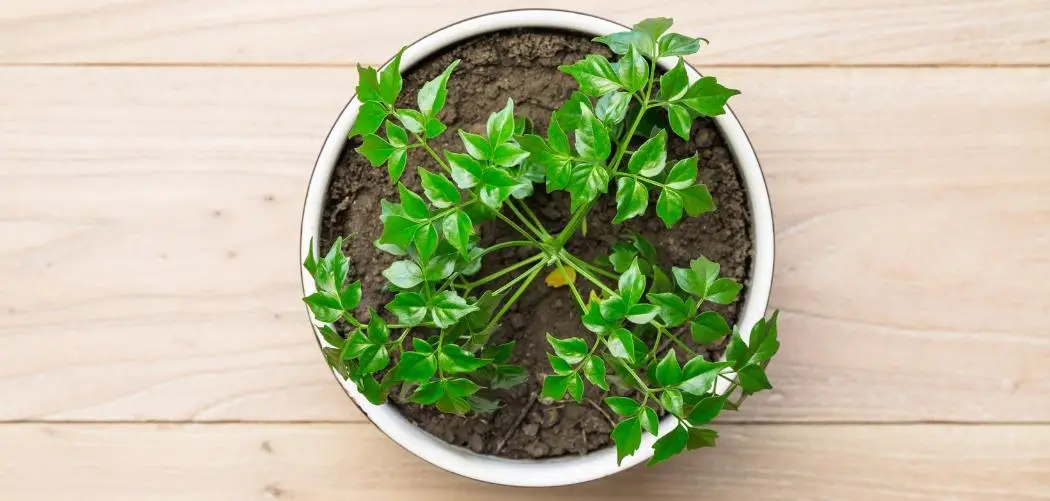We're an affiliate
We hope you love the products we recommend! Just so you know, we may collect a share of sales or other compensation from the links on this page. Thank you if you use our links, we really appreciate it!

Soil compaction is a common issue that can occur when plants are grown in pots. This occurs when the soil becomes too dense, which makes it difficult for water, air, and plant roots to move through it. This can cause a variety of problems for plants, including decreased growth rates, poor root development, and even death. In this blog post, we will discuss how to prevent soil compaction in pots and help your plants thrive!
Table of Contents
How to prevent soil compaction in pots?
1. Choose plants that are suited for the potting soil and climate
When growing plants in pots, it is important to choose varieties that are suited for the potting soil and climate. Otherwise, the root system will not be able to properly anchor the plant, leading to soil compaction. This can cause the plant to become stunted and produce fewer leaves and flowers.
Additionally, compacted soil is more difficult for roots to access oxygen, causing the plant to become stressed and more susceptible to disease. To avoid these problems, choose plants that are known to do well in the type of potting soil you are using and provide them with the appropriate amount of water and sunlight.
2. Use a good-quality potting soil
Any gardener knows that healthy plants need nutrient-rich soil to thrive. However, when growing plants in pots, it is especially important to choose a potting mix that will help prevent soil compaction. Soil compaction can occur when the soil is too dense, preventing roots from spreading and taking up nutrients.
It can also happen when the soil is too dry, causing it to shrink and pull away from the sides of the pot. A good quality potting mix will help to retain moisture and nutrients, preventing both of these problems. In addition, a well-aerated potting mix will also help to prevent root rot and promote drainage. As a result, choosing the right potting mix is essential for keeping potted plants healthy and happy.
3. Mulch around the plants
mulching helps to keep the soil moist and cool, which can prevent soil compaction. In addition, it helps to protect against wind and water damage. Mulching also helps to regulate moisture levels and prevent weed growth. As a result, mulching is an important gardening technique that can help to prevent soil compaction in pots.
4. Water the plants regularly
One of the most important aspects of plant care is watering. Too little water can stress plants and cause them to wilt, while too much water can lead to root rot and fungal growth. Perhaps even more importantly, incorrect watering can cause soil compaction.

Soil compaction occurs when the particles of dirt become tightly packed together, making it difficult for roots to penetrate the ground. This can happen if you overwater or underwater your plants on a regular basis. The best way to prevent soil compaction is to water your plants deeply but infrequently, allowing the soil to dry out between waterings. This will encourage strong root growth and help prevent compaction.
5. Fertilize the plants every few weeks with a balanced fertilizer
Plant fertilization is important for many reasons. Fertilizers provide essential nutrients that help plants to grow and thrive. However, it is also important to select the right fertilizer for your plants. Using too much fertilizer can damage plant roots and lead to soil compaction. This is especially a concern in pots, where the roots have less room to spread out. To prevent soil compaction, use a balanced fertilizer and apply it every few weeks according to the manufacturer’s instructions.
What are some signs that your plant’s soil has become compacted?
There are a few telltale signs that your plant’s soil has become compacted. The first is a decrease in drainage. If water is pooling on the surface of the soil or taking a long time to drain away, it’s a sign that the soil has become too dense. Additionally, compacted soil often looks and feels dry and crumbly.
Conclusion
Soil compaction is a common problem in potted plants, but it can be prevented with proper care. Use a good-quality potting mix and mulch around the plants to keep the soil moist and cool. Water the plants deeply but infrequently, and fertilize every few weeks with a balanced fertilizer. By taking these simple steps, you can help your plants to grow strong and healthy while preventing soil compaction.

